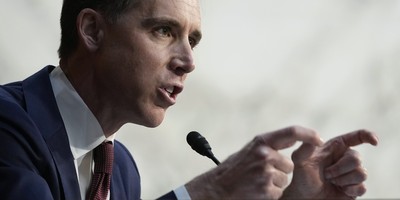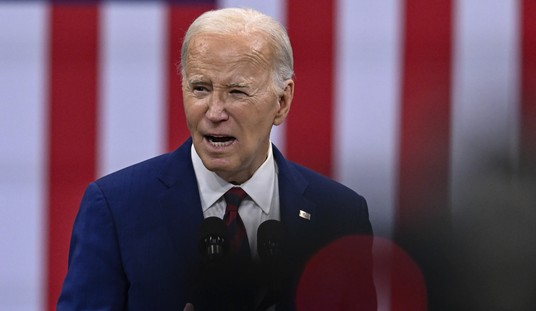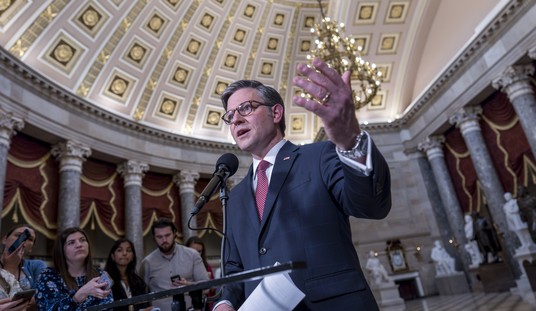This weekend, Jack Bauer returns to save all things great and small during the latest fictional crisis to be played out over one agonizingly long day. No doubt he will be the same old Jack, not a man known for subtlety or nuance. Bullets will fly, some bombs will explode, while others tick away, and the good guys will ultimately prevail.
In a strange and ironic juxtaposition, as faithful viewers begin another seasonal journey with 24, a real-life drama is unfolding, one that involves the appointment of someone who represents ideas as un-like Jack Bauer as possible. President-Elect Barack Obama is tapping old Washington hand Leon Panetta to head the Central Intelligence Agency.
Mr. Panetta is, by all accounts, an able manager and savvy politician – both qualities will certainly help him in this new role. But many have raised questions – serious ones (and not all by Republicans) - about his qualifications for this unique role. I hear the Secretary of Commerce position is open once again, wouldn’t a manager do well there? There is a difference between management and leadership.
It doesn’t take a mind reader to discern that Mr. Obama is determined to tame the CIA and bend it to his will and vision. Not all of his appointments have demonstrated the kind of change he campaigned about, but this one surely does. He is taking a cue from his hero, John F. Kennedy – specifically the JFK who tried to clean the spy house after the Bay of Pigs fiasco. Goodbye, Allen Dulles the espionage expert, and hello, John McCone the efficient manager.
Panetta is the new McCone.
The only thing the Leon Panetta appointment and Jack Bauer have in common is the lack-of-subtlety thing. A signal is being sent to the nation and nations. A kinder-gentler sheriff is in town. No more ugly stuff - certainly no hint of torture. And GITMO? Well, we’re going to shut that bad place down and bring its residents to our mainland – maybe even a backyard near you.
Recommended
Americans are decent people. We understandably flinch and recoil at violence. We deplore senseless killing. We cannot even begin to grasp the fanatical insanity of our Islamist enemies.
But the mistake often made is to assume that others – in places far away and vastly different – think and feel as we do. We regularly and all too predictably underestimate the wickedness and bloodthirsty nature of those who would just as soon wipe us off the face of the planet as look at us. Too many think that people are all basically reasonable and we just need to find some common ground.
Lyndon Johnson used to speculate that if only he could sit down with Ho Chi Minh and promise him some kind of Tennessee Valley Authority-like public works initiative for Vietnam that the communist leader would make peace. But LBJ missed the point that some people are wired differently – especially those who use actual wires tied to bombs.
It is a monumental mistake for anyone on our side to think for a moment that there is any point or place of accommodation that will bring peace, when those we are fighting have a ferocious and fanatical passion for our complete demise.
So – when we telegraph our punches (or better, pull the punch) by putting someone in charge of our major intelligence arm who has long indicated there are some things we will not do in this war, we need to understand that our enemies are not going to be impressed with our “humanity.” Instead, they will know that they have gained an important upper hand in their struggle.
Torture is an ugly word. It is unpleasant and decent people abhor the very idea of it. But, if it is permissible and considered as a necessary evil by a just society to kill terrorists, to bomb them, to send missiles their way, and to otherwise fight them will cruel might, why is torture, under certain circumstances, where we draw the “moral” line?
Years ago, when then heavyweight boxing champ, Muhammad Ali, refused the draft and was stripped of his title, comedian George Carlin (not yet famous) appeared on the Ed Sullivan Show and mocked the pugilist. He suggested, humorously, that there was some inconsistency in a case where a man was claiming to be a pacifist who regularly beat people up for a living.
We can’t have it both ways in this current international climate. We can’t profess to fight a war on terror – using violent means. We can’t target enemy leaders for death, launch missiles, or drop bombs to kill terrorists, but say at the same time that we won’t rough up a “detainee” to obtain vital life-saving information. The Panetta appointment is, in effect, a public indication that the new sheriff in town will – as Sean Connery put it in the movie, The Untouchables – be bringing a knife to a gun- fight.
Of course, intelligence work is a murky business. But it is a necessary evil in war. Many are drawing parallels between our times and 1929, when the wheels fell off the economy en route to the Great Depression. There is, however, another interesting comparison between then and now. That year, Henry Stimson – Herbert Hoover’s Secretary of State – shut down a spy operation while uttering the famous and naïve words: “Gentlemen don’t read other gentlemen’s mail.”
It’s a pretty good thing we grew out of that notion – considering what unfolded during the ensuing decades. Stimson meant well, in trying to “civilize” a business that is inherently uncivilized – war. But the time for such tenderness is after the battle is won, not when guns are blazing.
Torture is certainly horrific. But is it at times necessary – in at least some forms? Henry Kissinger once said, “Covert action should not be confused with missionary work.”
It would seem that the important factor is context – in other words, a case-by-case approach is the best way to make such moral judgments. For example, no decent human being would consider torture for the sake of torture (getting sadistic pleasure from inflicting pain) to be morally acceptable under any circumstances. And, even in cases where authorities used torture to obtain a confession in a criminal proceeding – that would be inappropriate and of bounds.
But how about when a “detainee” is believed (strongly believed) to have important information – the kind that, if known, would save the lives of civilians or military personnel?
Former Chief of CIA Counterintelligence, James M. Olson, has written an excellent book about all of this – one every American concerned about this issue should read. In Fair Play: The Moral Dilemmas of Spying, he traces the history of espionage back to the days of the Bible and beyond. With an intelligence career that included assignments in Moscow, Vienna, and Mexico City during the Cold War, he knew first hand of the challenges and issues of conscience spy work involves.
Now serving in a key academic post at the Bush School of Government and Public Service at Texas A&M University, he teaches about intelligence and national security issues.
In the book, Mr. Olson describes various scenarios – some involving the potential use of methods considered by some to be torturous. He has interviewed leaders from several walks of life – from intelligence agents, to clergymen, to professors, even someone from People for the Ethical Treatment of Animals – and chronicles their opinions.
Torture is just one of many methodologies Olson analyzes – others include: journalism cover, homosexual blackmail, kidnapping, truth serum, missionary cover, feeding a drug habit, bogus websites and chat rooms, - even plagiarizing a Ph.D. Dissertation. For anyone interested in the moral implications of intelligence work in a dangerous world, Fair Play is a must-read (originally published in 2006, it is now out in paperback).
Olson concedes “spying is a dirty business,” but asks: “Should we put all our trust in overt sources of information, diplomacy, and the peaceful arts – and hope are enemies will not take advantage of us?”
At a time when a highly and fanatically motivated enemy is watching and waiting to strike at the heart of all we hold dear, Mr. Obama seems to be sending the clear, unmistakable, and potentially ominous signal that the CIA is an entity to be managed and tempered.
I am sure radical Islamists worldwide are going to be very impressed. But I find myself earnestly hoping that we keep a few guys like Jack Bauer around - just in case.

























Join the conversation as a VIP Member